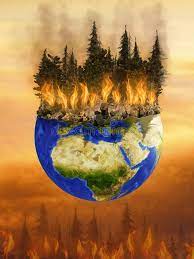The Ecology of Kurt Vonnegut and Why You Should Read His Works

April 10, 2023
I just finished reading my fifth novel by my favorite author Kurt Vonnegut. And the thing that kept poking me in the back of my brain the entire time was the realization that besides all of his books to this point being extremely witty and hilarious, there was one recurring theme: the damage that humans wreck onto this here planet earth. This isn’t some guy who’s read the headlines in recent years and decided that’s what he’ll virtue signal about. Vonnegut novels that I’ve read span between 1963 and 1990. I wouldn’t say he had foresight. I’d say he was just paying attention and actually seemed to care about what we humans have done to earth.
In Galápagos (1985) the main theme is a shipwreck on the Galápagos island while a war wipes out the rest of the human race (Vonnegut served in World War II and humans killing each other for no reason is another trope explored in his novels). During Galápagos he talks about the destruction of the environment, and as I vividly recall, how subjective economies are. Let me explain, he talks about how the Ecuadorian Sucre completely crashes solely due to market manipulation and no actual natural disaster or anything of the sort, just material value that humans have created, thus everyone in Ecuador is subject to being the poorest of the poor just because some fake number nose-dived.
Yet with all this brain power we choose to ignore the very obvious fact, of course backed up by science, that the world is melting like a chocolate bar in an oven… Vonnegut’s writing is insightful into the state of affairs that humans have gotten themselves into and he’s a hilarious . — Zev Papernick
Vonnegut was very introspective into the general American psyche, saying in Cat’s Cradle (1963) that “Claire tried to make the point that American foreign policy should recognize hate rather than imagine love.” Mind you, this was before the Vietnam War or U.S. incursions in the Middle East where we thought we’d be received lovingly with open arms by people whose families we’d slaughtered and displaced.
In Hocus Pocus (1990), the novel I just finished and esteem to be a severely underrated book, Vonnegut talks of how the national forest near Scipio, New York, was all chopped up and sold to the Japanese so that the U.S. could reduce the national debt, which he claims, was more than all of the property in North America combined. If anybody was paying attention to the self destruction of America by America it had to have been Vonnegut. Look no father than the recently federally approved Willow Project in Alaska, an attempt for jobs to be created and the economy to be boosted, at the expense of wildlife, to feel the prescience of Vonnegut. Too bad they aren’t Americans being killed, then we’d actually care. Oh right, Americans school children are being killed in their schools, and America doesn’t care.
Vonnegut realizes nobody cares, but that doesn’t stop him from presenting the fact that humans are in fact the dumbest race of all, hilariously, of course. We have all the brains to do all this cool stuff like make make vaccines and megalopolises, or we could just put the best minds together to make atomic bombs and gas chambers. Yet with all this brain power we choose to ignore the very obvious fact, of course backed up by science, that the world is melting like a chocolate bar in an oven, or the forests are receding faster than a middle-aged man’s hairline. What we are doing is glaringly obvious. All of Kurt Vonneguts characters are either people that were somebody or they’re just ordinary nobodies that are flung into remarkably stupendous situations. His writing is insightful into the state of affairs that humans have gotten themselves into, and he’s hilarious. If you’d don’t know what to read next pick up one of his books and keep the things stated in this article in mind. The underlying (and sometimes overlying) message is that we humans are just as animalistic and stupid as any other.










